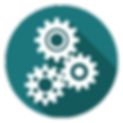
5 Design Pillars of High-Impact Enterprise RAG Solutions
Sep 3, 2024
3 min read
0
47
0
In today's dynamic business environment, staying ahead requires not just innovation but strategic adoption of technology that drives efficiency and insight. Retrieval Augmented Generation (RAG) is emerging as a game-changer in this domain. But what does it mean for your enterprise? Here’s a strategic guide on leveraging RAG to propel your business forward.
What is RAG?
Retrieval Augmented Generation (RAG) is a cutting-edge AI approach that integrates two powerful techniques: information retrieval and generative modeling. It enables businesses to pull relevant data from extensive datasets and generate precise, contextually accurate content. This dual capability is transformative, allowing enterprises to process large volumes of data swiftly and produce actionable insights that enhance decision-making and operational efficiency.
In an era demanding agility, accuracy, and efficiency, traditional methods can fall short, leading to operational inefficiencies and missed opportunities. RAG addresses these challenges head-on by offering a sophisticated solution for handling complex data queries and producing insightful, contextually relevant content.
So, how can you ensure that your enterprise RAG solution meets the highest standards? Here’s a strategic guide focusing on four critical requirements: simplicity, extensibility, trustworthiness, and economic efficiency.
1 - Simplicity: Streamline Operations with Ease
No-Code Development
Your RAG solution should be intuitive and accessible, even for those without extensive technical expertise. Imagine your finance team generating detailed financial summaries with minimal technical input. A no-code RAG system enables users to harness advanced AI capabilities without requiring specialized skills, speeding up deployment and enhancing usability.
Built-In Integrations
Ensure seamless integration with your existing systems. For example, connecting your RAG solution with your HR management system can automate the creation of performance reports. This reduces manual processes, increases productivity, and ensures that the system enhances rather than disrupts current workflows.
Minimal Technical Debt
Opt for a solution designed to minimize technical debt—ongoing costs and complications from quick, patchwork fixes. This means fewer disruptions and lower maintenance costs, leading to more reliable and cost-effective operations.
2 - Extensibility: Future-Proof Your Investment
Unifying Data Silos
A robust RAG solution should integrate disparate data sources for a comprehensive view. Consider a technical support team combining chat logs, emails, and support tickets to improve troubleshooting. Breaking down data silos enhances decision-making and operational efficiency.
Support for Multiple Data Modalities
Ensure your RAG system can handle various data types—structured and unstructured. This capability is crucial for comprehensive customer support, integrating chat logs, database tables, code bases and documentations to provide deeper insights and improve service quality.
Multiple Deployment Options
Choose a RAG solution that supports cloud, on-premises, or hybrid deployment models. Large enterprises with stringent security needs might prefer a hybrid model, balancing cloud scalability with on-premises control to ensure flexibility and robust data security.
3 - Trustworthiness: Ensure Reliability and Security
Data Security
Protecting sensitive information is crucial. For a finance department, this means strict access controls and encryption. Your RAG solution should incorporate these security measures to safeguard critical business data.
Avoiding Hallucinations
Your RAG system must produce accurate and relevant outputs. For instance, an HR system should avoid errors or irrelevant information in policy summaries. Implementing mechanisms to minimize “hallucinations” (incorrect or nonsensical outputs) ensures the system's reliability.
Human-in-the-Loop Design
Incorporate human oversight to validate AI-generated content. For Level 1 technical support, human agents reviewing automated recommendations ensure accuracy and appropriateness, enhancing overall reliability.
4 - Economic Efficiency: Maximize ROI
Predictable Costs
A clear, predictable cost structure aids effective budgeting and financial planning. Understanding the cost implications of various deployment options and usage levels helps manage expenses and aligns the RAG investment with financial goals.
Tangible Return on Investment (ROI)
Evaluate ROI by measuring the tangible benefits of your RAG system. For example, an HR automation solution that cuts manual report generation can lead to significant cost savings and operational efficiencies. Quantify these benefits to justify the investment and ensure alignment with business objectives.
5) Trust: Topical and Security Guardrails
Topical Guardrails
Ensure that your RAG system adheres to relevant guidelines and generates content that aligns with company policies. In customer support, filters can ensure automated responses remain on-topic and compliant with organizational standards.
Security Guardrails
Implement additional security measures, such as access controls and regular audits, to protect your RAG system from potential threats. These guardrails are crucial for maintaining data integrity and security.
Conclusion
Adopting an enterprise-grade RAG solution is not just about embracing advanced technology—it's about aligning that technology with your strategic goals and delivering tangible business value. By focusing on simplicity, extensibility, trustworthiness, and economic efficiency, you can build a RAG system that enhances your operations and drives success.
In a landscape where technology evolves rapidly, prioritizing business outcomes over algorithms is essential. A well-implemented RAG solution can revolutionize your data handling, improve decision-making, and ultimately contribute to your organization's growth and competitive edge.
~ Treva Engineering
